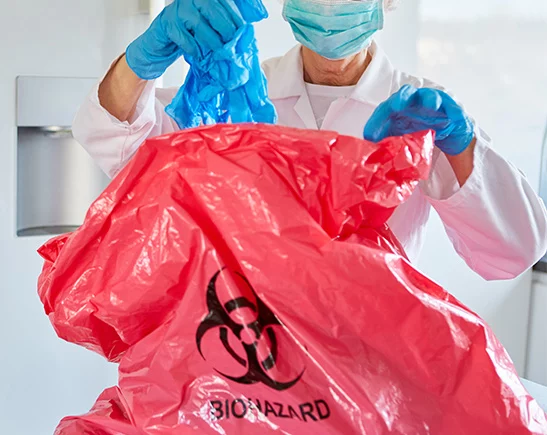Comfort at Your Doorstep: Situating Reliable Medical Waste Removal Near Me
Comfort at Your Doorstep: Situating Reliable Medical Waste Removal Near Me
Blog Article
Exploring Various Garbage Disposal Options for a Cleanser Environment
In the quest of a cleaner environment, the administration of garbage disposal has actually become an important centerpiece for sustainable advancement. With a plethora of garbage disposal choices offered, varying from conventional land fill techniques to innovative waste-to-energy innovations, the option of just how we handle our waste has significant effects for our world's health. By analyzing the various approaches and methods utilized in reusing, composting, incineration, garbage dump administration, and waste-to-energy procedures, a much deeper understanding of their effects and efficiency can be gained. The mission for optimum garbage disposal techniques that focus on environmental conservation while satisfying the needs of a growing populace continues to be a pressing concern in today's globe.
Recycling Techniques
Carrying out effective recycling techniques is essential in minimizing waste and advertising sustainability in our setting. Reusing entails the process of converting waste materials into reusable objects to protect against unnecessary disposal. Among one of the most typical recycling methods is worldly recovery, where products like paper, glass, plastic, and metal are collected, sorted, and refined to create brand-new items. This procedure not only saves all-natural resources yet additionally minimizes energy consumption and greenhouse gas exhausts connected with creating brand-new products from the ground up.
An additional essential recycling method is composting, which includes disintegrating natural waste like food scraps and backyard trimmings right into nutrient-rich soil. This process not only draws away natural waste from landfills yet also produces a beneficial source for horticulture and farming. Furthermore, upcycling is an innovative recycling technique that includes changing old or disposed of materials right into items of better or worth. By incorporating these numerous recycling techniques into our waste administration techniques, we can significantly reduce our ecological footprint and move in the direction of an extra lasting future.

Composting Strategies
Reliable waste monitoring techniques, such as recycling approaches, lead the means for a cleaner atmosphere, and currently, shifting the emphasis to 'Composting Techniques', we discover sustainable means to break down natural waste for ecological benefit. medical waste disposal.
Composting is a natural process that changes organic waste, like food scraps and backyard trimmings, into a nutrient-rich soil amendment. The secret to effective composting depends on creating the ideal equilibrium of green products, such as vegetables and fruit scraps, and brownish materials, like dried leaves and branches. These materials break down with the aid of microorganisms, damaging down the waste right into useful garden compost.
There are different composting techniques available to suit different needs. Conventional backyard composting entails layering organic products in a bin or heap and on a regular basis transforming the combination to freshen it. Vermicomposting, on the various other hand, utilizes worms to damage down natural matter into compost (click here). For those with minimal room, indoor composting systems provide a convenient remedy. By utilizing composting strategies, we can minimize the amount of waste sent to land fills while creating a beneficial item for improving soil and supporting plant development.
Incineration Cons and pros
Incineration, as a waste disposal method, presents both benefits and negative aspects that merit mindful factor to consider in the world of lasting waste management practices. On the favorable side, incineration can substantially minimize the volume of waste, decreasing the demand for land fill area and possibly reducing greenhouse gas exhausts.
Additionally, the high first investment and operational prices of incineration facilities posture financial challenges, making it a less economical option compared to various other waste administration approaches. Mindful surveillance and law are important to reduce these negative effects and make best use of the benefits of incineration as part of a comprehensive waste administration technique.
Garbage Dump Management Strategies
Garbage dumps play a crucial function in waste management and environmental conservation by providing a control system for the disposal of solid waste materials. Effective garbage dump monitoring strategies are vital to mitigate environmental influences and make certain the long-lasting sustainability of these waste disposal sites. One crucial technique appertains waste compaction to make the most of using available area within the garbage dump (click here). By compacting the waste, the quantity is decreased, enabling more waste to be fit in time.
Furthermore, the implementation of day-to-day cover methods is essential in decreasing smells, stopping clutter, and decreasing the destination of bugs. Covering the disposed waste at the end of every day aids to include smells and protect against potential environmental contamination. Additionally, the tracking of land fill gas discharges and leachate levels is important in ensuring that ecological standards are satisfied and that any possible threats to bordering ecological communities are reduced.

Waste-to-Energy Technologies
One of the innovative methods to lose administration entails utilizing Waste-to-Energy innovations to transform solid waste into useful power sources. Waste-to-Energy (WtE) innovations include a variety of procedures that intend to extract power from waste materials via thermal, chemical, or organic ways. This conversion procedure not just decreases the quantity of waste that ends up in landfills however likewise creates beneficial energy sources such as electrical power, warmth, or biofuels.
There are a number of approaches of Waste-to-Energy conversion, including gasification, pyrolysis, and incineration. Incineration entails melting waste at high temperatures to produce warmth and electrical energy. Gasification converts waste into a syngas, which can be made use of for power generation or chemical manufacturing. Pyrolysis breaks down natural products making use of high temperature levels in the lack of oxygen, generating char, gas, and bio-oil.
Applying Waste-to-Energy technologies can aid alleviate ecological concerns connected with conventional waste disposal techniques while all at once offering a renewable resource source. Nevertheless, mindful factor to consider should be offered to emissions control and making certain the sustainability of feedstock materials for these modern technologies to be really valuable for a cleaner atmosphere.
.jpg)
Conclusion
Finally, checking out different garbage disposal alternatives such navigate here as reusing, composting, incineration, land fill administration, and waste-to-energy technologies is important for advertising a cleaner atmosphere - click here. Each method has its very own benefits and difficulties, yet by using a mix of these techniques, we can work in the direction of minimizing the amount of waste that winds up in land fills and eventually add to a much more lasting future for generations to come
With a wide range of waste disposal alternatives available, varying from standard garbage dump approaches to ingenious waste-to-energy technologies, the option of just how we manage our waste has far-ranging ramifications for our earth's health. medical waste removal near me.Incineration, as a waste disposal technique, provides both advantages and negative aspects that warrant cautious factor to consider in the realm of lasting waste administration methods.Land fills play a crucial role in waste monitoring and ecological preservation by supplying a containment system for the disposal of strong waste products. By compacting the waste, the volume is minimized, enabling for even more waste to be fit over time
One of the ingenious techniques to squander administration entails harnessing Waste-to-Energy technologies to convert solid waste into usable power sources.
Report this page